Manipur: Amid shutdown, protest, Kuki group reiterates its demand for separate administration

Amid shutdown and protest on the occasion of a year completion of the ethnic conflict in Manipur, the Zomi Council Steering Committee (ZCSC) reiterated its demand for a separate administration for Kuki-Zomi-Hmar communities of Manipur.
The ZCSC has submitted a memorandum to the President of India Droupadi Murmu, in which they voiced for a separate administrative structure for the Kuki-Zomi and Hmar communities out of the purview of the state of Manipur.
In a statement, ZCSC said: “A year ago today, the gruesome and heartless ethnic cleansing pogrom against the Zo ethnic (Zomi-Kuki-Hmar) communities began and was openly patronised by the majoritarian Manipur government under the leadership of Manipur’s chief minister Nongthombam Biren Singh. The Zomi Council Steering Committee (ZCSC), taking cognizance of the complete absence of any sign of things ever getting back to normal, submitted a memorandum to the President of the Indian Republic today reiterating the plight of the Zo ethnic tribes − the Hmars, the Kuki-Zos and the nine Zomi tribes − and called for the nation’s much-needed intervention.”
“The memorandum explicated the need for restoration of normalcy and ensuring peaceful co-existence by way of creating separate administration for the Zo ethnic tribes under the Indian Constitution in the form of Union Territory with Legislature by highlighting the already existing undeniable separation between Meitei and Zo people on all faultlines, including the need to maintain a buffer zone between Zo and Meitei ancestral territories,” the statement said.
The ZCSC memorandum delved into the historical background and described how the Zo ancestral territories and the Valley of present-day Manipur have always been two distinct socio-political, cultural, historical and geographical entities.
The letter cited the British executing a series of treaties and forming boundary commissions to carve out large chunks of hill lands from the hitherto independent Burma (1826), Naga Hills (1842), Chin Hills (1894) and Lushai Hills (1901) to be administered by the British Political Agent stationed at Imphal; it was this administrative unit that became present-day Manipur. Recognizing the distinct identities of the Meiteis and the Zo ethnic communities, the successive British Political Agents ensured that the Zo Chiefs never came under the Meitei rulers, it added.
The memorandum also described how the Zo identity and way of life were slowly dismantled and made to lose their distinctive flavour under successive Manipur governments in post-colonial independent India, leaving the Zo ethnic tribes socially excluded, culturally suppressed, politically marginalized, economically deprived and developmentally neglected for decades.
The memorandum brought to light how the genocide against the Zo ethnic tribes that began a year ago has now set a dangerous precedent, where minority assertion of rights was met with violent majoritarian wrath, leading to widespread casualties and wanton destruction. It also highlighted the involvement of every section and level of Meitei society − the political leadership, the government machinery, the secessionist Meitei terrorist groups as well as the Meitei civil society − who have all joined hands in their attempt to wipe out an entire ethnic tribal community from the face of present-day Manipur, and the overwhelming evidence that they are not going to discontinue or back down anytime soon.
The ZCSC document concluded that separate administration for both the communities − Meitei and Zo − now seems to be the only viable and durable solution for peace, and the only workable way out of the Manipur State-engineered national security problem and humanitarian catastrophe, and is the only means to let both indigenous communities live with mutual respect and dignity. Outlining the desired steps for executing such a solution, the ZCSC also prayed for hastening of the process to ensure lasting peace in the region.
Recalling the Tribal Solidarity March held exactly a year ago, the ZCSC appealed to the public to maintain Tribal Solidarity, particularly the Zo people’s Solidarity while paying utmost respect to all our Martyrs who made the supreme sacrifice for our ancestral land, our history and our Zo identity.
Prayer, rallies and shutdown marked the first anniversary of the Manipur ethnic clashes, which erupted on May 3, 2023, leaving 230 people dead and more than 50 thousand families displaced.
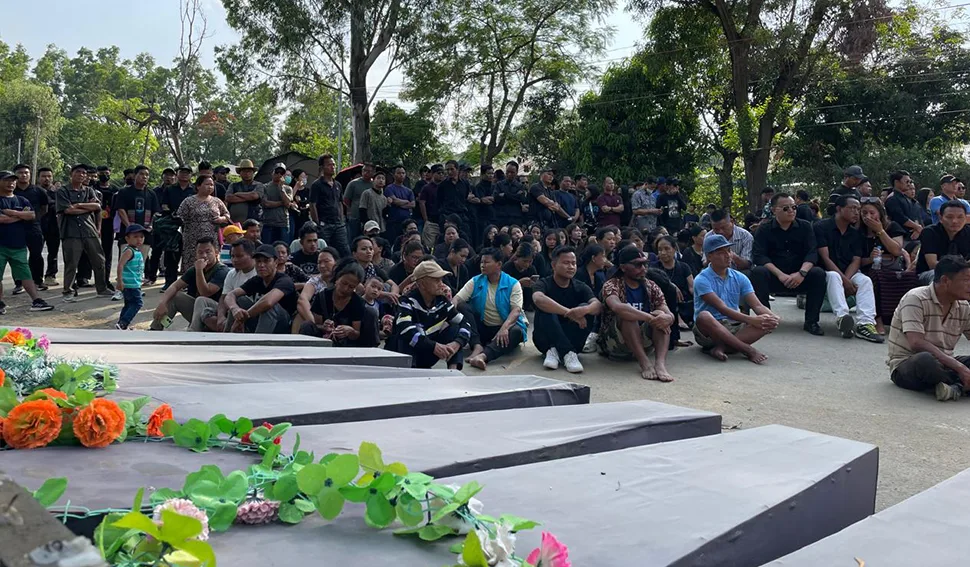
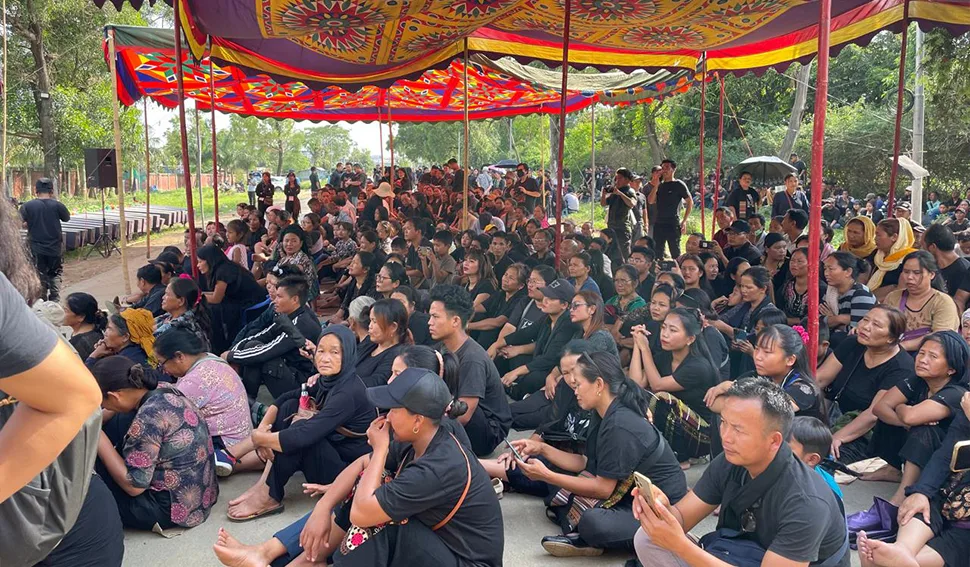
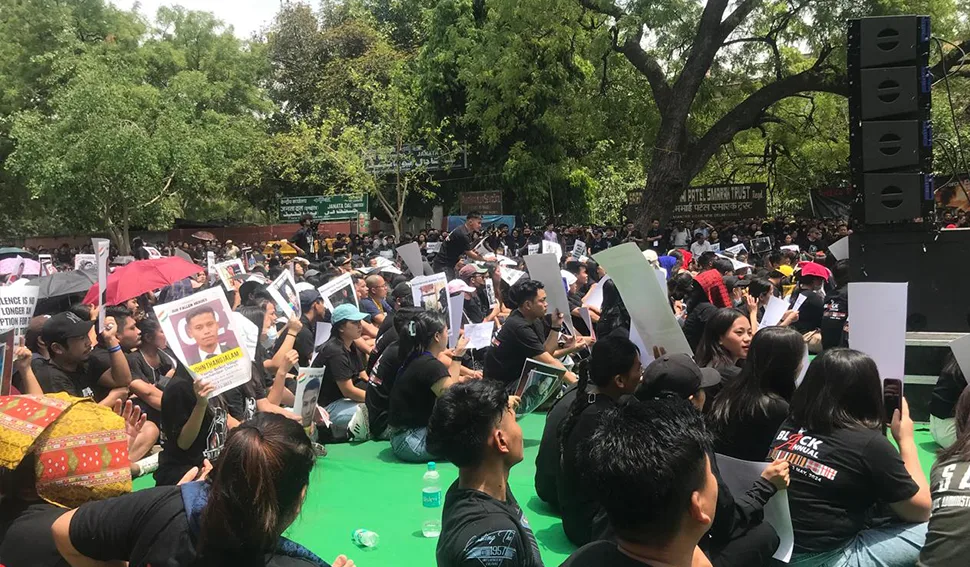
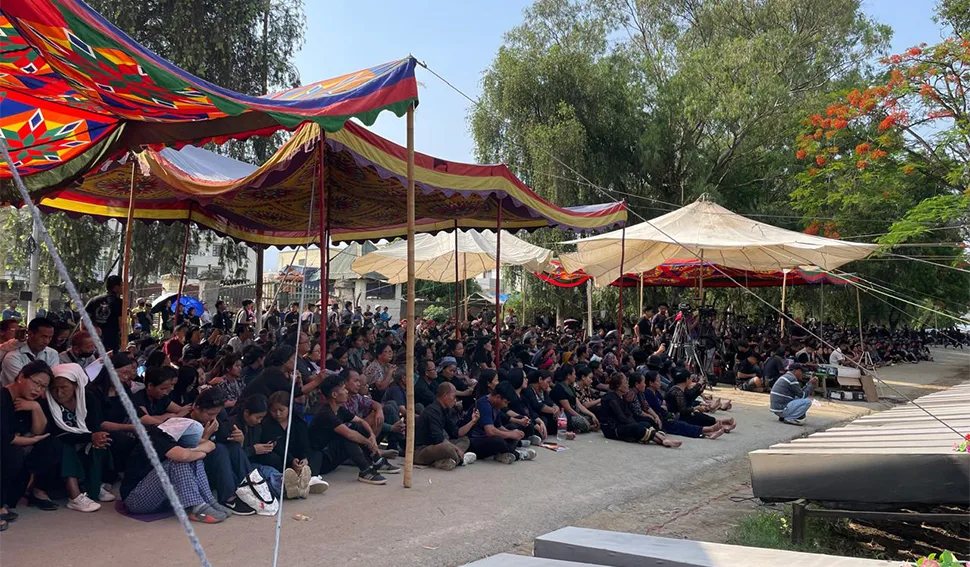
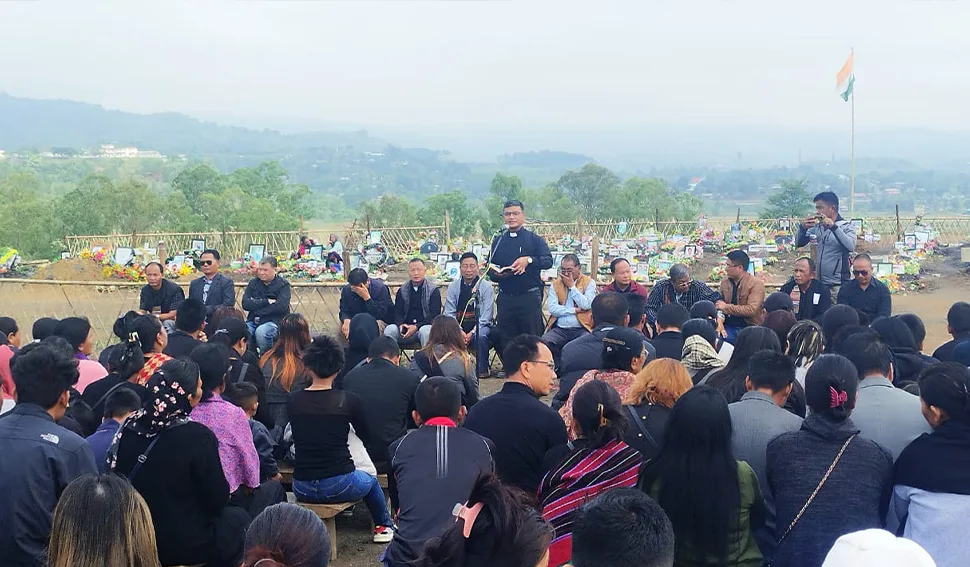
The Indigenous Tribal Leaders Forum (ITLF) called for a shutdown on Friday to protest against state-sponsored ethnic cleansing against the Kuki-Zo community.
Prayer meetings were organised at Churachandpur to pay tribute to the departed souls who have been martyred in the clash.
Thousands paid floral tributes to the Kuki-Zo victims on the occasion.
ITLF secretary, Muan Tombing reaffirmed the collective stance for separate administration for the tribal communities.
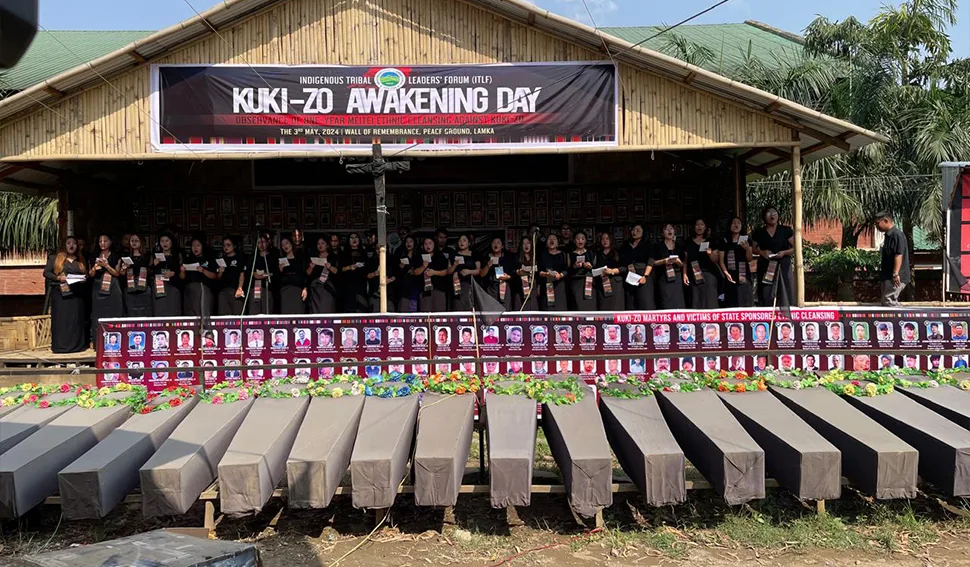
Leave a Reply